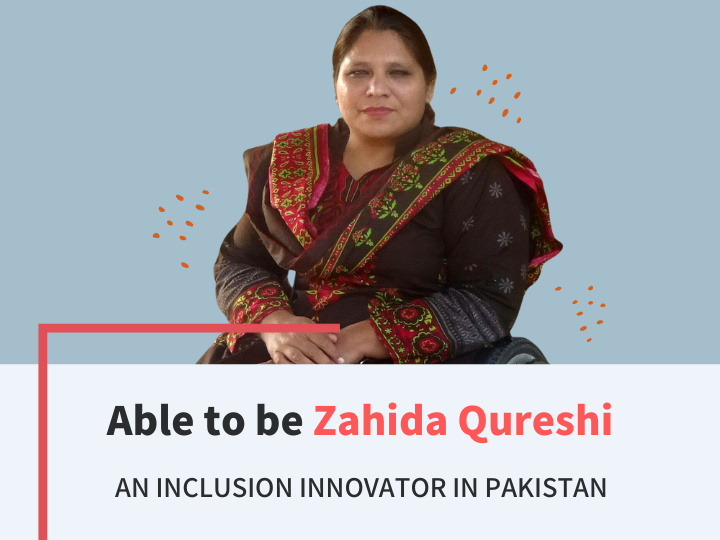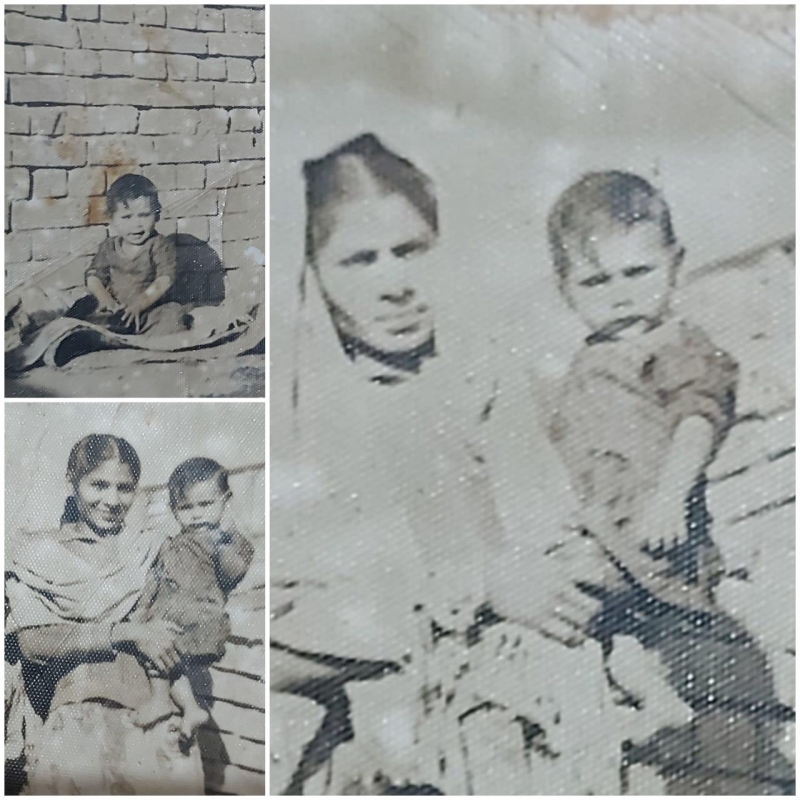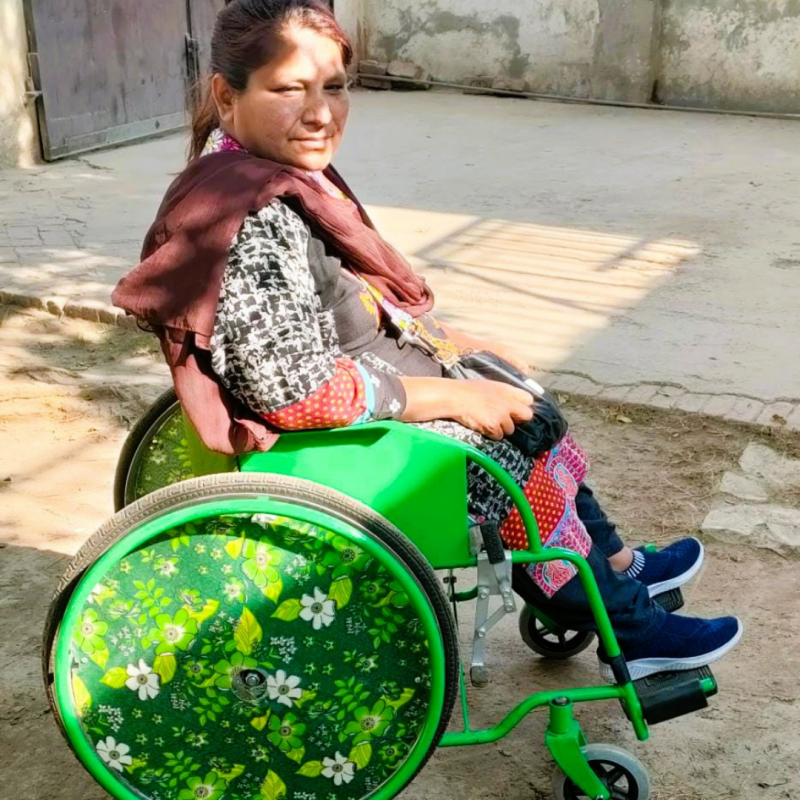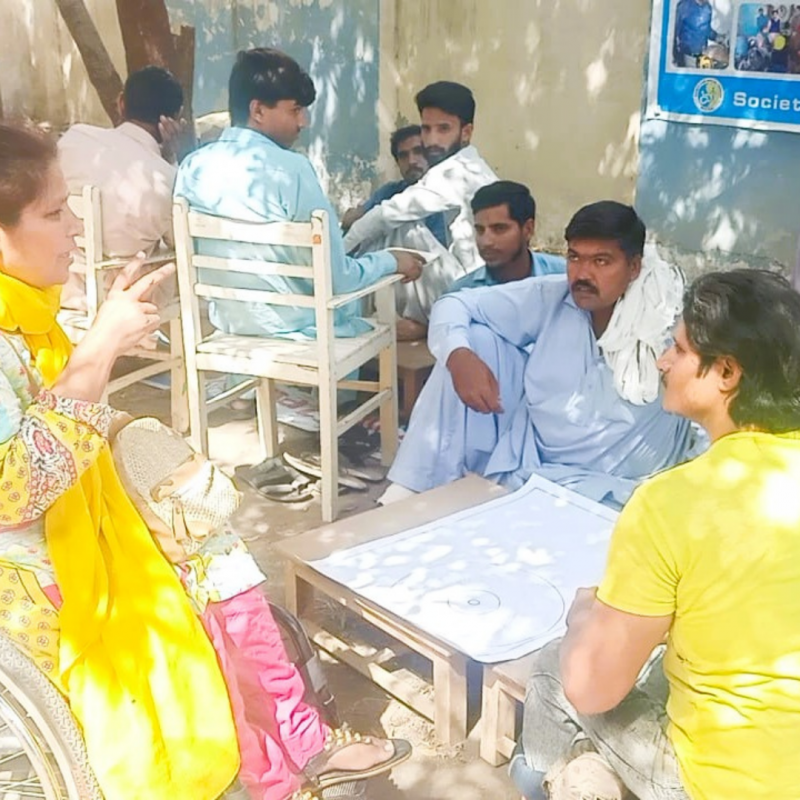Zahida's dream
Growing up I had a dream - I always wanted to do something extraordinary. I’ve borne pain and faced drastic challenges, but I’ve never given up my struggle. And now my dreams have been realised.
I’m from Multan, a city in Punjab, Pakistan. As a baby I was paralysed by polio, which means I can’t stand or walk. My brother was born with a learning disability. Our mother fought hard to educate and care for us both.
People often look at disability as a disease, but I’ve never accepted this. Instead, I made myself strong on the inside. I mustered up my courage, confident that I shall educate myself, and my brother.
I mentally prepared us both to not lose hope. We are not a burden or a liability. Our disability should not be a source for others to create problems. With support from my family my and community, I focused on my studies.
Looking back, I think it inspired people to see me going to school in my uniform: ‘What a girl, despite her disability!’.
We are not a burden or a liability. Our disability should not be a source for others to create problems. Zahida Quereshi
An educated woman
I didn’t discover the concept of a wheelchair until I was in college. Without it I would’ve spent my life crawling on the floor.
But still, I made it to college, where my teachers knew about inclusive education. That’s when I started advocating for better access, including basic infrastructure like transport, pavements and ramps to enter school buildings. At university, my revolution finally came, when I convinced the administration to introduce inclusive facilities.
By the time I passed my MA in Economics, a wave of change was coming. More parents started entering their children with disabilities into education, because now they could see better facilities on offer.
Since then, I’ve dedicated my life to empowering differently abled people. I founded my own organisation, the Society for Special Persons. I’ve also become the first and only woman to introduce a customised wheelchair manufacturing process in Pakistan.
This is my passion.
For me, my disability is my strength. And my message is to never lose hope. Zahida Qureshi
An inclusion innovator
Assistive devices like wheelchairs are the key to our independence. So far, our organisation, the Society for Special Persons, has manufactured 3,000+ wheelchairs and distributed them for free.
We’ve also trained and certified more than 450 people with disabilities through skills projects like handicrafts, computers, mobile repairs and dressmaking, as well as building and repairing wheelchairs. We also help people find jobs and get microfinance so they can live independent lives.
Another project close to my heart is our self-help groups, led by and for women with disabilities in Punjab. We’re also building a database of people with disabilities who need support, including children. And we run projects to promote scouting and the Accessible Pakistan campaign to make society more inclusive.
Change needs to happen at both the micro and macro levels. I’m now working with Punjab’s Social Welfare department and other organisations, including the UN, pushing for national policy and legislation reforms.
I’m thankful to our government for supporting our efforts to empower people with disabilities. And I’m very proud to have received several awards, including the Pakistani Government’s Presidential Award and Fatima Jinnah Woman of the Year.
For me, my disability is my strength. And my message is to never lose hope. We’ve got many challenges ahead, but change is possible. We’ve come a long way already since I was that little girl with a big dream.




